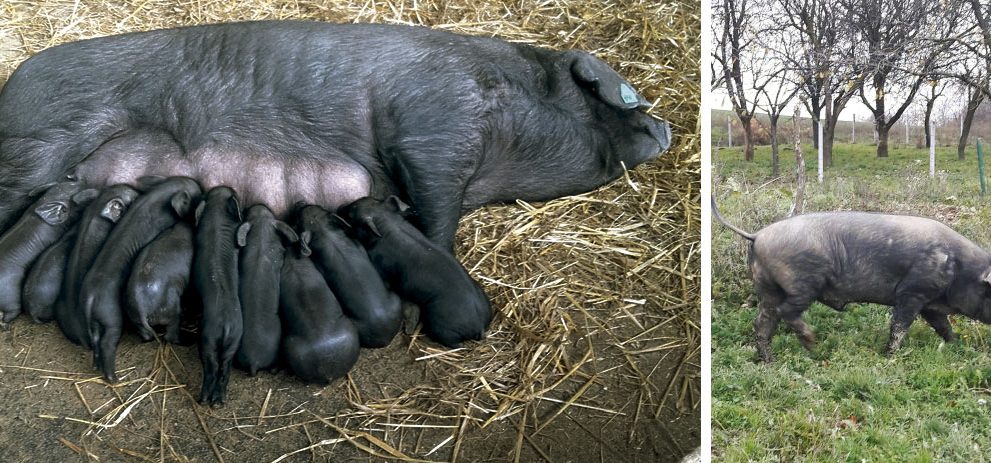From Ivana Marić in Zagreb
Zagreb, Croatia: The picturesque fields of Eastern Croatia, home to the distinctive Black Slavonian pig, have been rocked by a recent outbreak of African Swine Fever (ASF). This highly contagious disease, which decimates pig populations, has prompted an urgent scientific investigation into its impact on the breed’s genetic diversity.
The Black Slavonian pig, a hardy local breed prized for its high-quality meat, faces a unique vulnerability. Its outdoor rearing practices, while traditional, increase its exposure to wild boar, a known vector for ASF. The 2023 outbreak, which saw a fifth of the breeding population lost, has raised serious concerns about the breed’s long-term survival.
“The Black Slavonian pig, despite its stable population numbers in recent years, should be considered an endangered breed when genetic diversity parameters are taken into account,” says Dubravko Škorput of the University of Zagreb Faculty of Agriculture.
A recent study, analysing the breed’s pedigree data, sought to determine how much ASF-related culling had affected its genetic makeup. While somewhat surprising, the findings offer a complex picture of the situation.
“Contrary to expectations, the genetic diversity parameters were slightly more favourable after analysing the data in the scenario where we excluded animals culled due to ASF,” explains Danijel Karolyi, also from the University of Zagreb Faculty of Agriculture.
This counterintuitive result suggests that the culling may have selectively removed highly related animals, potentially improving the overall genetic diversity of the surviving population. However, the researchers caution that this could be a temporary effect.
“If breeding is limited to a smaller number of surviving individuals, long-term diversity could still be at risk despite the temporary increase in genetic variation,” warns Zoran Luković, co-author of the study.
The study highlights the challenges of relying solely on pedigree data, which can be incomplete or inaccurate, particularly in local breeds. “Future studies should focus on the use of molecular information that could be useful for determining relatedness between mating candidates to support genealogical information and a more reliable estimation of key parameters of genetic diversity,” advises Ivan Stupnisek, Faculty of Agriculture, University of Zagreb.
Marija Špehar, from the Croatian Agency for Agriculture and Food, emphasizes the need for proactive measures to safeguard the breed’s future. “Biosecurity measures that can prevent further outbreaks of ASFV in the population must be conducted strictly. Furthermore, to counteract the loss of genetic diversity, targeted breeding programs that prioritise maximising genetic diversity should be implemented.”
The researchers advocate for the creation of a protected nucleus of Black Slavonian pigs, ensuring the preservation of their genetic pool. They also stress the importance of dispersing the breed geographically to mitigate the impact of future disease outbreaks.
The study concludes that while the Black Slavonian pig population has shown some resilience in the face of ASF, continued vigilance and proactive conservation efforts are essential to ensure the breed’s long-term survival. The unique heritage of this Croatian pig breed hangs in a delicate balance.




